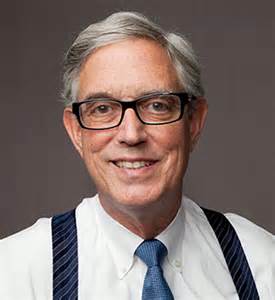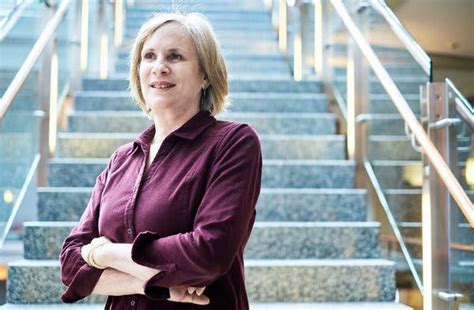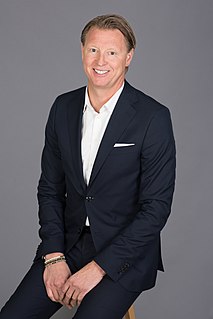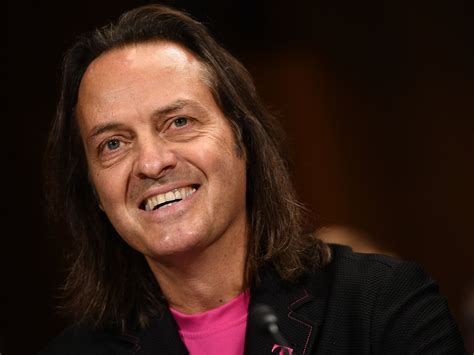A Quote by Tim Cook
I think of a traditional CEO as being divorced from customers. A lot of consumer company CEOs - they're not really interacting with consumers.
Related Quotes
I like to take CEOs into consumers' homes to see the "real world." CEOs have privileged lives with big incomes, lots of help, access to just about anything they wish. The average consumer lives on $53,000 a year and has daily tradeoffs and compromises that must be made. I took a CEO into a trailer park so he could observe first-hand - and understand - how consumers use his product.
As a CEO, you get sucked into dealing with all the tasks of being a CEO. There's a big meeting, a big discussion, and you get into all the big issues, which is your job. But what CEOs often lose sight of is that it's all about the people who work for you. For every 1,000 decisions, 999 were being made when I was not in the room.
Many companies operate from more of a command-and-control environment - they decide what's going to happen at headquarters and have the organization execute. That doesn't work here because it's the community of users who really have control.
So we enable, not direct. We think of our customers as people, not wallets. And that has implications for how we run the company. We partner with our customers and let them take the company where they think it's best utilized.
The thing that's confusing for investors is that founders don't know how to be CEO. I didn't know how to do the job when I was a CEO. Founder CEOs don't know how to be CEOs, but it doesn't mean they can't learn. The question is... can the founder learn that job and can they tolerate all mistakes they will make doing it?
If consumers weren't thinking this way, companies would be a lot less responsive. Right now, consumers don't really have a way to get information about where exactly their clothing is coming from - that's a barrier. We have labels on your eggs, "cage-free hens." They need to get something along those lines to allow the consumer to discriminate.
I think to some degree one of the strengths of the high tech industry is that people are actually willing to tell you things. When I went to Novell, I didn't know how to be a CEO, so I went in and I called all sorts of CEOs I knew. I called in a favor. I wanted to come by and listen to them tell me what it's like to be a CEO.
Strangely, from a life-change standpoint, I sold the company I was running and got divorced in the same month. And so there I was, at home, and I'm not the CEO. I took a few months thinking about what I wanted to do. When the first call came in about running a company owned by Deutsche Telekom, I thought it was laughable and really not something I'd do. I took the meeting mainly because the headhunter I knew. At first I thought I was just helping her fill out the roster, but then I dug into it.
Please, please, stop referring to yourselves as "consumers." OK? Consumers are different than citizens. Consumers do not have obligations, responsibilities and duties to their fellow human beings. And as long as you're using that word "consumer" in the public discussion, you will be degrading the quality of the discussion we're having. And we're going to continue being clueless going into this very difficult future that we face



































